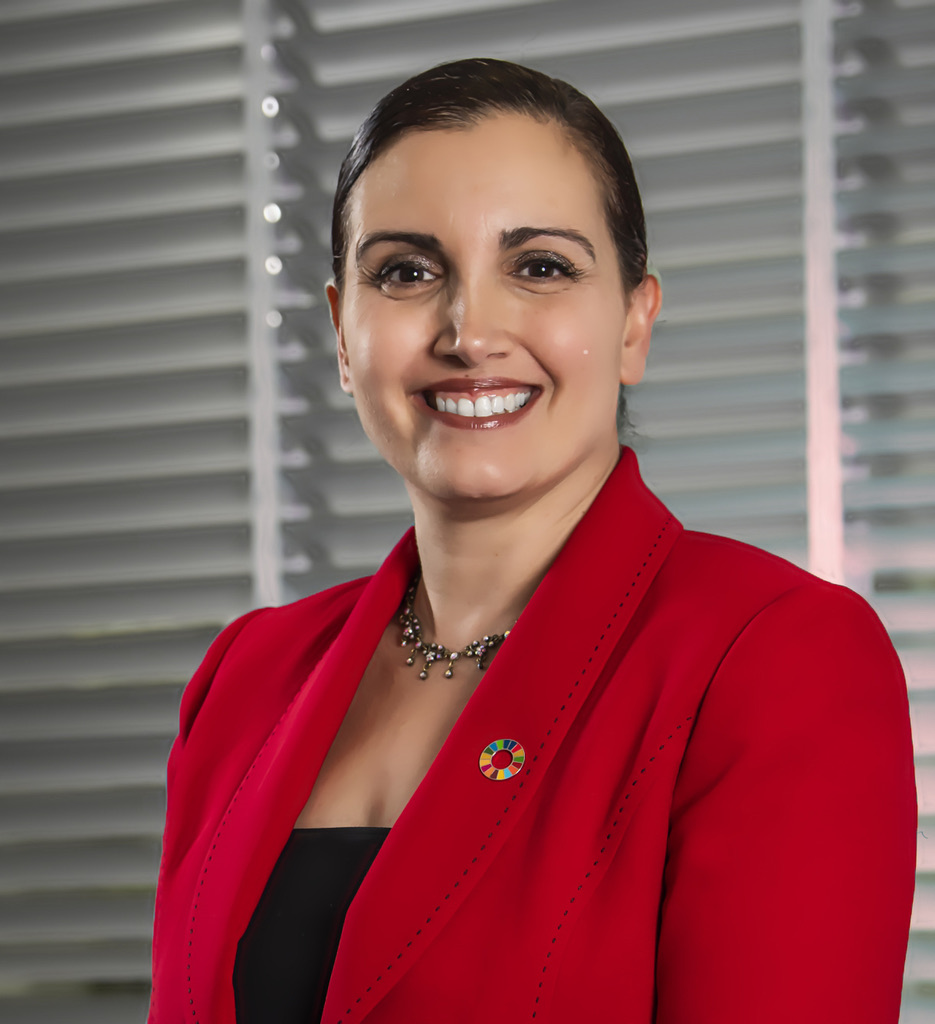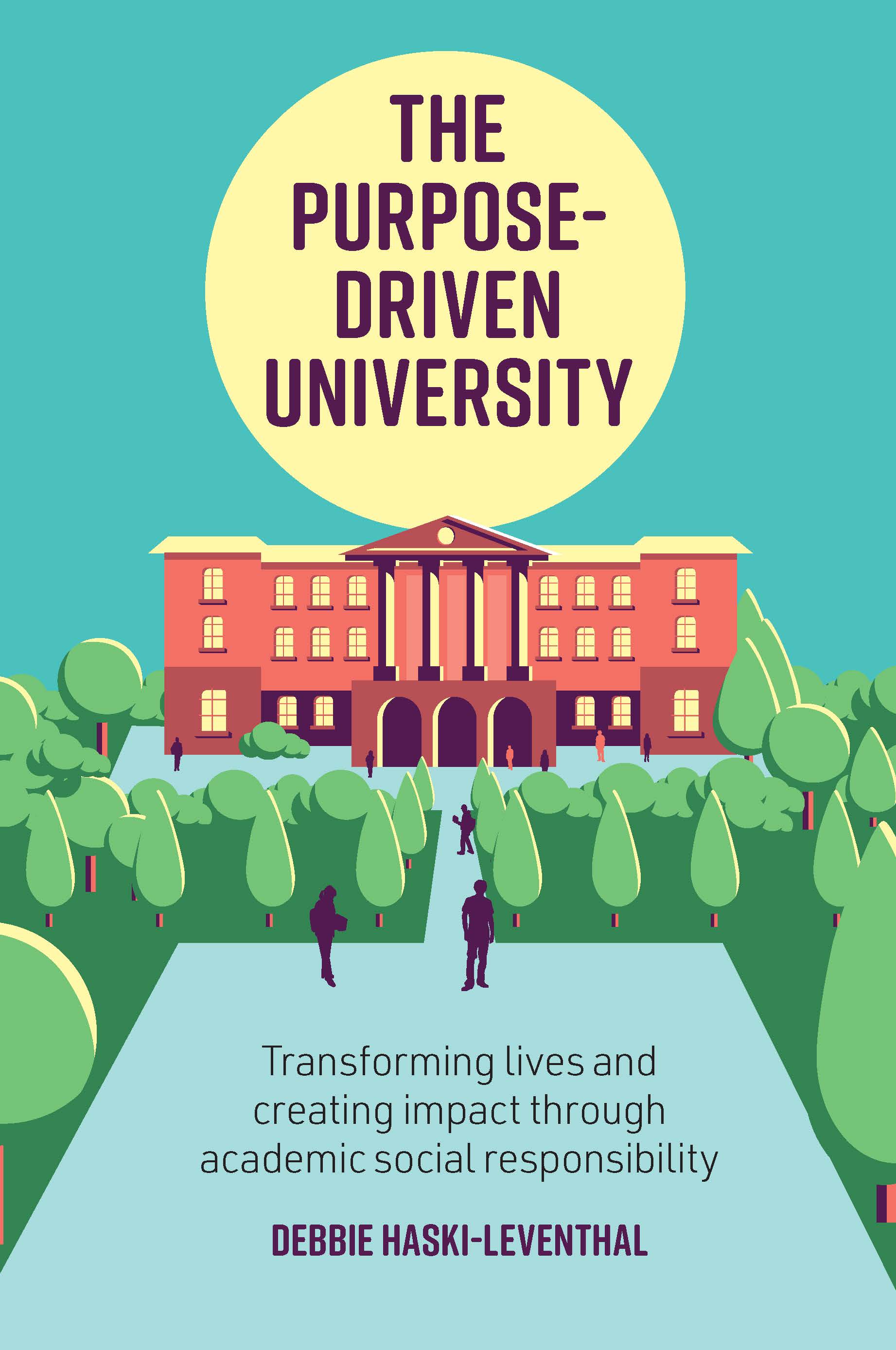
Author: Debbie Haski-Leventhal
Drawing on her own personal journey and research from her recently published book, author Debbie-Haski-Leventhal talks about the shift towards purpose in higher education.
This is my very first blog on the purpose-driven university. How exciting! As the book, The Purpose-Driven University, was just published with Emerald, I am starting this blog to capture some of the main ideas in the book and add to them over time.
This book was such a pleasure to write. I have been thinking, feeling and dreaming about the purpose-driven university in the last three years, and it is elevating to see it printed. It has been my passion and my personal purpose, and I am delighted to finally deliver it.
It all started many years ago. At the age of 20, I left my home in Tel Aviv to study philosophy at the Hebrew University in Jerusalem. It was very hard on me financially, so I joined a student tutoring project, where university students mentor children, usually from disadvantaged families. I worked with a sweet 8-year-old boy and felt like I made a difference in his life. I was so engaged with this work, that I ended up volunteering for another year, to later become a volunteer coordinator and the vice-manageress of the entire project in Jerusalem. This led me to undertake a Master of Management of Not-for-profit Organisations and a PhD on volunteering.
My first degree was important, and while much of it remains with me until this very day, it was the extra-curricular volunteering that changed my life. It helped me to develop a meaningful career, leading, nowadays, to being a professor of corporate social responsibility (CSR) and volunteering.
As a scholar of CSR, I see companies that genuinely focus on the positive impact they can create in the world. In doing so, they also attract talent, engage employees, create consumer loyalty and enhance their reputation in the community. The global issues that we currently face cannot be addressed by governments alone, and business has an incredible power to be a force for good.
I started asking myself what if universities can be as purpose-driven as Patagonia and Ben & Jerry’s? What if universities used their power, resources, people, incredible intellect and even their physical campuses to create a positive impact in the world?
A few years ago, I started wondering: why cannot universities do the same? I started asking myself what if universities can be as purpose-driven as Patagonia and Ben & Jerry’s? What if universities used their power, resources, people, incredible intellect and even their physical campuses to create a positive impact in the world?
On diving into this, I discovered an emerging movement. While many universities around the globe are still obsessed with ranking and excellence and being ‘the best in the world’, a growing number of universities care about being ‘the best for the world’.
Stanford University is using its incredible research capabilities for social innovation and impact and to fight poverty. The University of Auckland is devoting itself to the Sustainable Development Goals, to help the world achieve these global goals by 2030. The University of Technology Sydney has an outstanding social impact framework, centred around the notion of it being an agent for social change. These and others are not only working to change the world, they are also changing the essence of higher education.
These universities lead with a strong sense of purpose: the reason for which something exists, and the reason it is done, made or used. Purpose is our reason for being, which rarely changes over time, although it may inspire and enable change. This led me to think about the reason for which universities were created and about the similarity between the words ‘university’ and ‘universe’ (defined as ‘combined into one, whole’). Universities were established to create universitas magistrorum et scholarium – a whole community of scholars combined into one to enhance knowledge and impact the world. Furthermore, ‘to educate’ means to open minds and lead forth (Helfand, 2011). We have somewhat shifted away from these original purposes.
In the context of the purpose-driven university, I refer to ‘impact purpose’: the purpose of helping others, creating a positive impact and making a difference in someone else’s life, like that little boy I tutored all these years ago. Impact purpose provides fulfilment, a sense of meaningfulness and even happiness.
As such, a purpose-driven university utilises its resources, knowledge, talent and people to continuously and intentionally contribute to the communities and the environment in which it operates: through research, education, programmes and service.
The time for the purpose-driven university movement is now. Businesses have been focusing on increasing engagement around purpose for the last 20 years, but many universities still stand by educating students and conducting research as their sole purpose.
Leading with purpose is important because many universities are public organisations and/or they are using the money of students, governments or even wealthy donors, and, as such, they have a responsibility to play a role beyond providing students with degrees and conducting research. It is about how we educate students and how we provide them with graduate capabilities that enable them to contribute to the world. It is about measuring research impact beyond citation numbers to focus on the change we can create in people’s lives and wellbeing.
To become a purpose-driven university, a holistic approach is required, one that is embedded in every aspect of the university: from its mission statement, through its teaching and research, to man- aging people, profits and the planet. It is about discovering and rediscovering the purpose of each university, living by it and sharing an incredible story of change and impact.
My new book, The Purpose-Driven University: Transforming Lives and Creating Impact through Academic Social Responsibility, is aimed at sharing everything that I have learned through my personal journey, together with my knowledge on corporate social responsibility, so that other universities can implement it. It captures the shift towards purpose in higher education and offers a new approach, frameworks and a blueprint for implementation.
The book offers the why, how and what of a purpose-driven university, utilising cases, research, concepts and a framework which can be implemented in any university interested in being different by genuinely making a difference. This book tells the stories of purpose-driven universities and other organisations and serves as a call for action by academic leadership.
The time for the purpose-driven university movement is now. Businesses have been focusing on increasing engagement around purpose for the last 20 years, but many universities still stand by educating students and conducting research as their sole purpose. The book offers a new approach to higher education, one that can truly change us and the world. Let the revolution begin.

About the book
The Purpose-Driven University: Transforming Lives and Creating Impact through Academic Social Responsibility is now available to buy from Emerald Bookstore.
Universities have a responsibility to the communities and the environment they are a part of. A purpose-driven university is one that asks itself why it exists and seeks to support its faculty and students so that they can have a positive effect on society far beyond monetary measurements. Author Debbie Haski-Leventhal discusses the ways a university can find its purpose.